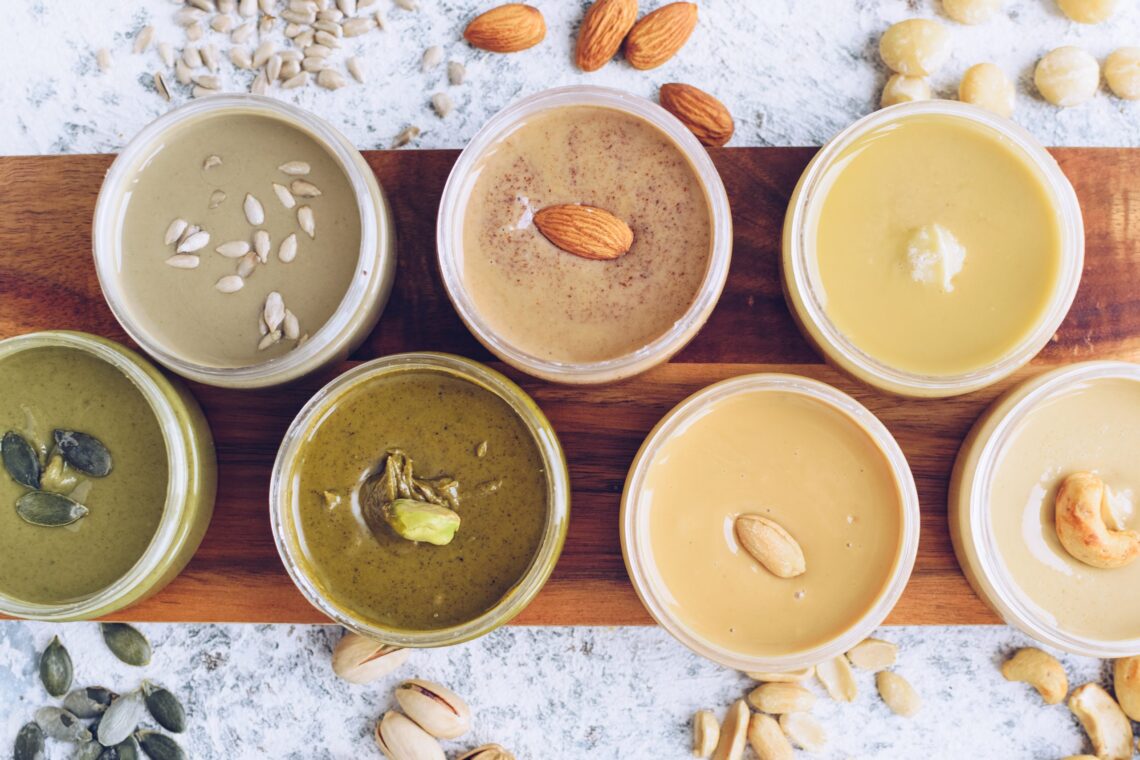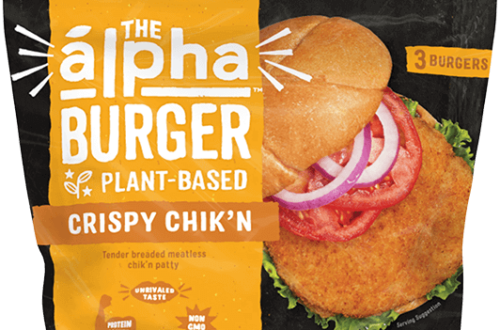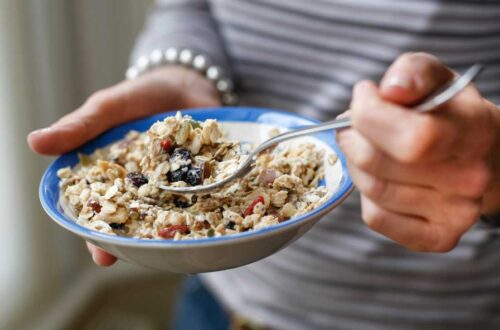Nut butter is filling. It’s a tasty, delicious addition to your diet. Most importantly, it’s nutrient dense. Yet, long gone are the days when the only option was peanut butter. Today’s options are far more vast and just as healthy if not more so. That said, here are the most healthy nut butters along with some good reasons to expand your nut butter horizons rather than being stuck in the peanut buttery past.
Peanut
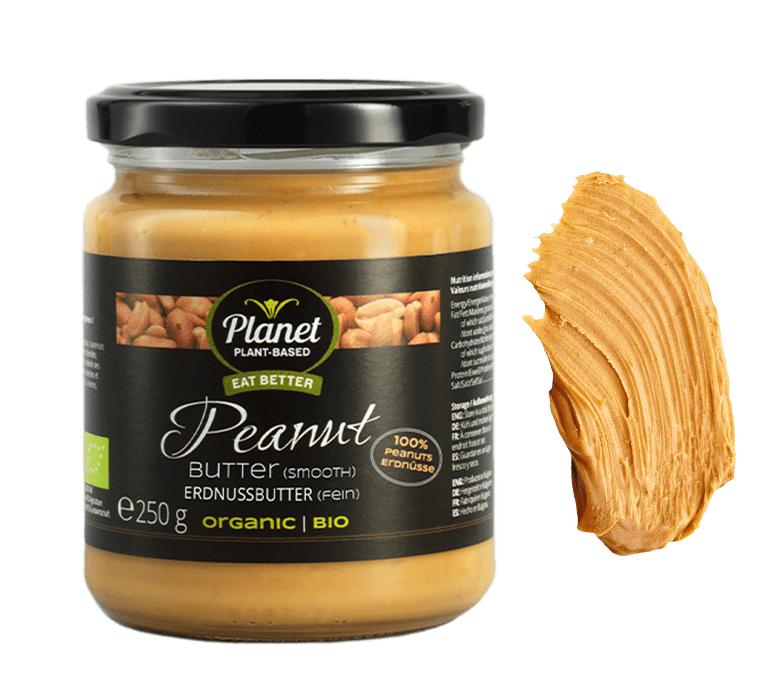
Now we’re not, by any means, looking to dis peanut butter. Heck, there’s a good reason that peanut butter has maintained the crown for so long. Peanut butter is loaded with healthy fats, vitamin E, protein, iron, folate, potassium, magnesium, vitamin B6 and zinc. So let the record show that peanut butter is the true O.G. Yet, our only goal here is to highlight some of the other options, starting with almond butter.
Almond
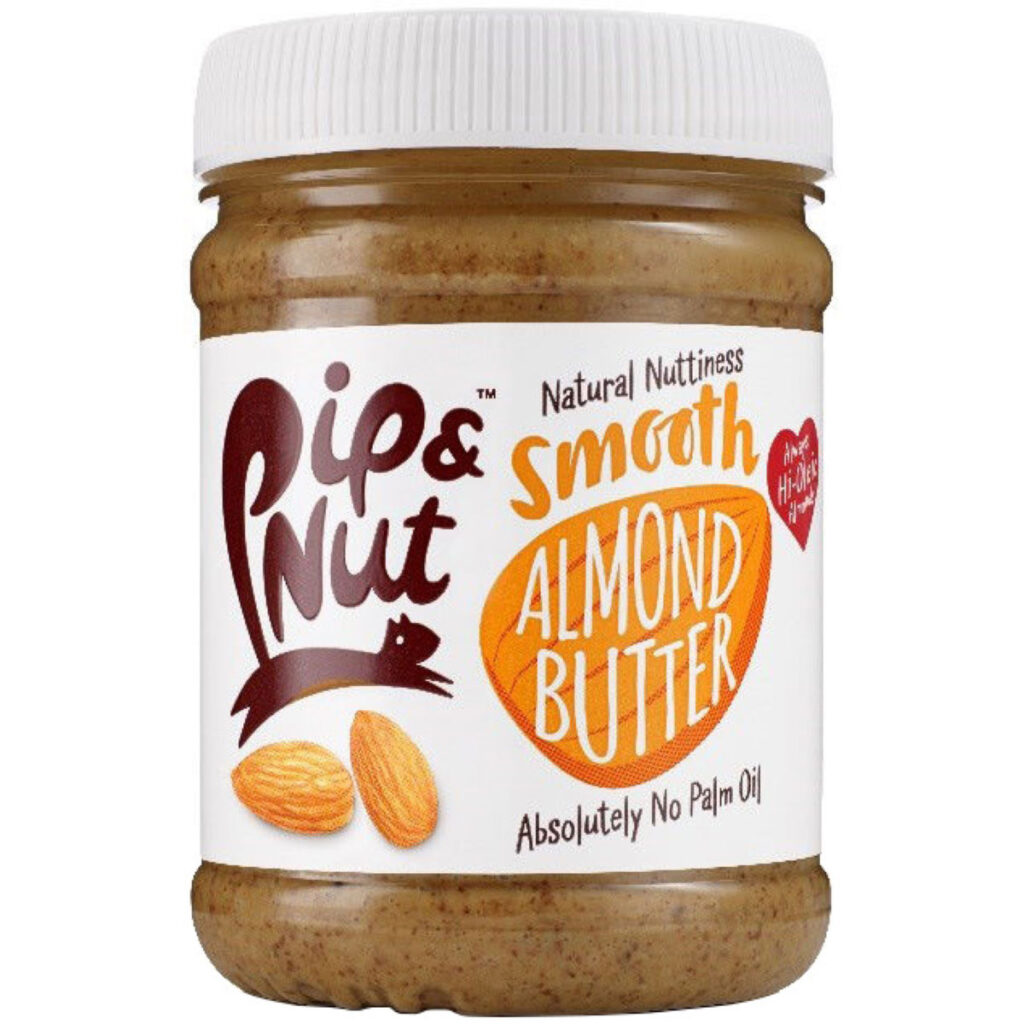
Almond butter is probably the closest in taste to our beloved peanut butter. According to dietitian Keri Glassman, RD, almond butter is the highest in healthy fats (about 3 grams more per serving than peanut butter). Additionally, almond butter is rich in protein, fiber, vitamin E, magnesium, and calcium.
Cashew
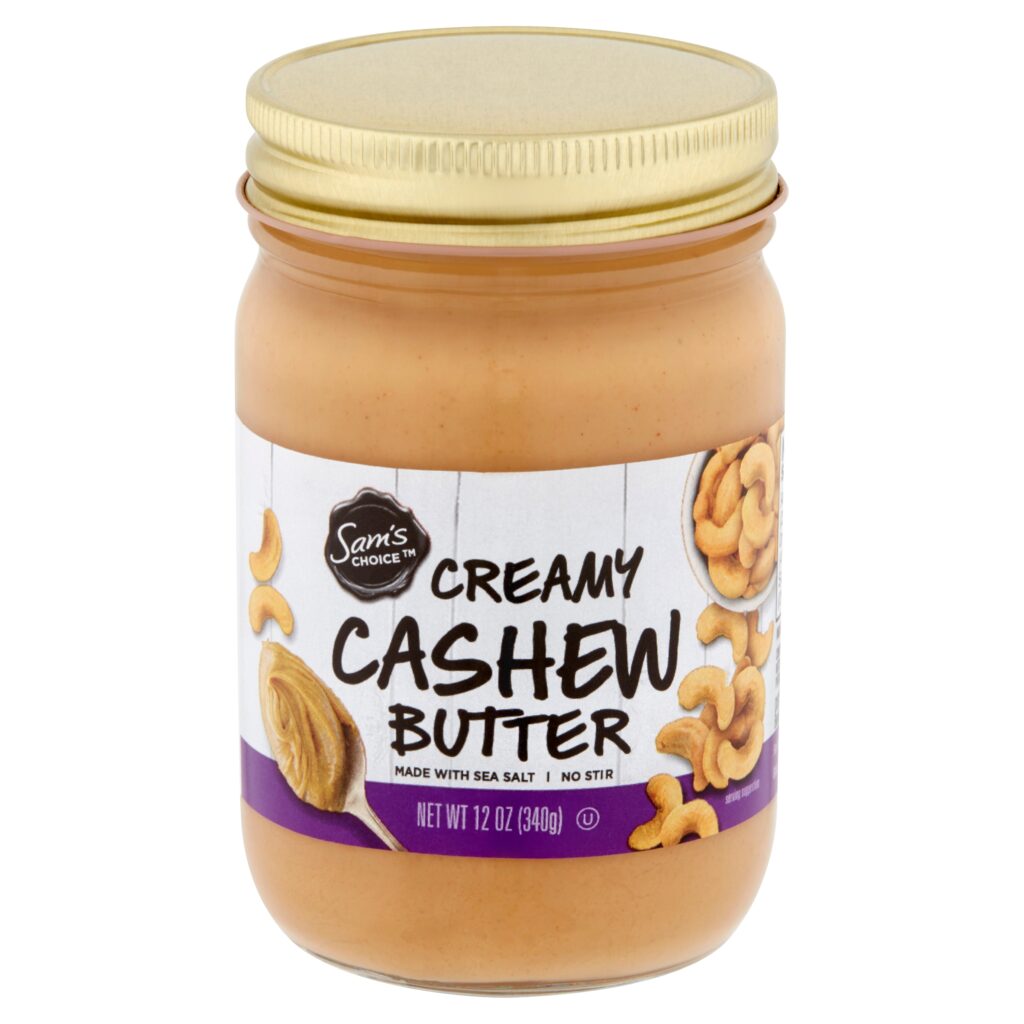
While lower in protein than most other nut butter options, cashew is also the most naturally sweet option. Besides that, cashew butter gets the 1st place award for being one of the creamiest nut butters available. Have you tried cashew milk yet? If not, you are in for a real treat!
Pistachio
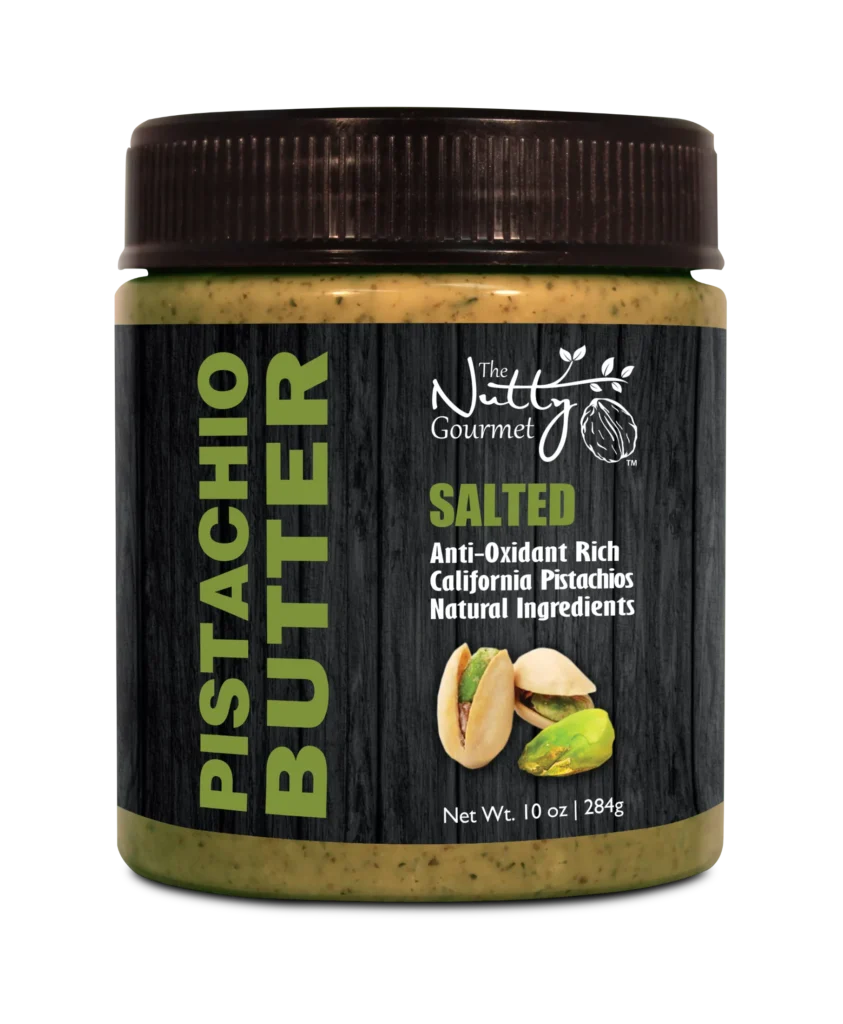
Pistachio is among the newest nut butters to come on the scene. As probably expected, pistachio butter definitely doesn’t disappoint in taste. Besides that, according to Scott Keatley, RD, dietitian and founder of Keatley Medical Nutrition Therapy, pistachio butter is “loaded with B vitamins that can help you turn calories into energy.”
Walnut
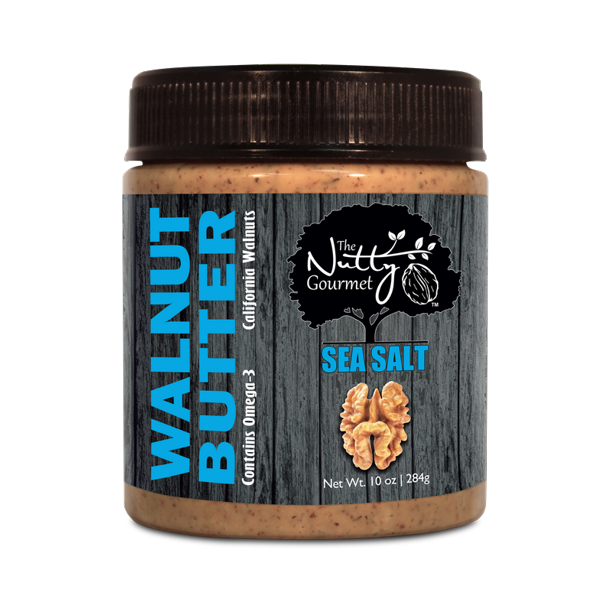
Walnut butter reigns supreme for having the most omega-3 fatty acids. In fact, according to Andrea Hasson, a registered dietitian at the Cedars-Sinai Nutrition Counseling Services, the healthful fat ratio in walnut butter helps lower LDL cholesterol, increase HDL cholesterol, and reduce inflammation.
Sunflower Seed
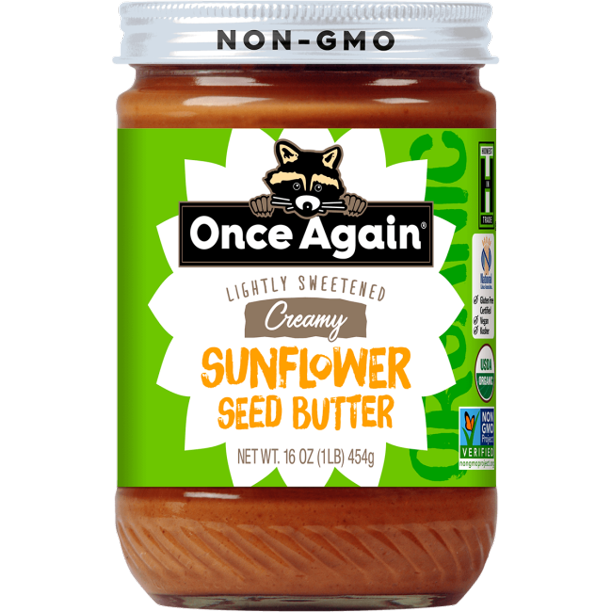
Also known as SunButter, sunflower seed butter offers the delightful benefit of being a great alternative for people who are allergic to peanut and tree nuts. Besides that sunflower seed butter is a good source of protein, fiber, zinc and iron, and is low in saturated fat. Then the goodness continues because sunflower butter boasts almost four times as much vitamin E as peanut butter, and about twice as much iron, magnesium, phosphorus and zinc.
Hazelnut
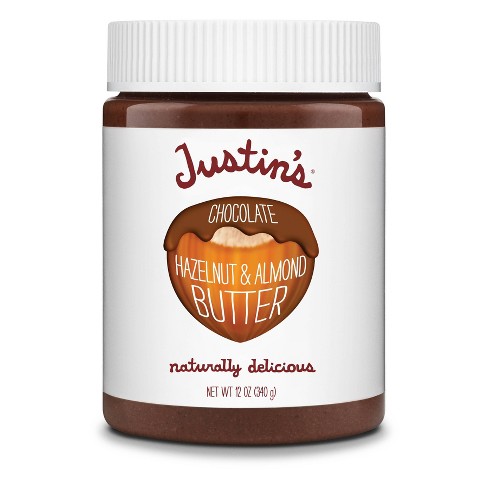
Hazelnut butter is definitely the most trendy as of late. However, be sure to make this an ocassional indulgence as hazelnut has a high sugar content. Nonetheless, like SunButter, hazelnut butter is a great alternative to those allergic to peanut butter. Also, hazelnut is a great source of vitamin E. It’s also rich in oleic acid, which is a form of monounsaturated fat that may help lower your risk risk of heart disease and stroke.
Tahini
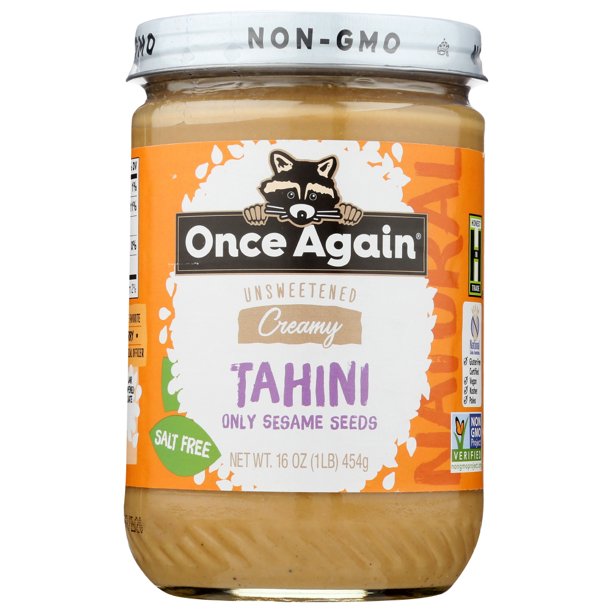
Tahini may be one of my favorites. I always keep tahini on hand to use in salad dressing recipes, sandwich spreads and dips. However, made from ground sesame seeds, aside from being a great pantry item tahini is loaded with nutritional goodness. It’s an excellent source of copper, manganese, calcium, magnesium, iron, phosphorus, vitamin B1, zinc, molybdenum, selenium, and dietary fiber.
These are the most healthy nut butters. Which is your favorite and why?
